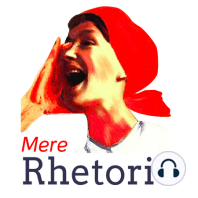7 min listen
Modern Dogma and the Rhetoric of Assent (NEW AND IMPROVED!)
FromMere Rhetoric
ratings:
Length:
11 minutes
Released:
Mar 9, 2016
Format:
Podcast episode
Description
Audio: Modern_Dogma_and_the_Rhetoric_of_Assent.mp3
In 1969 in Chicago, Illinois, a group calling themselves The Committee of 5000 Plus Against Disciplinary Procedures issued demands. They demanded that the issue of discipline would be seen in context that expulsions would be rescinded, that cases against protesting students be dropped. At the end of the list of the demands, they demanded that the failure of the Committee of the council, which is to say, the council of the University of Chicago, to respond satisfactorily to these demands by Tuesday noon March fourth will in and of itself constitute grounds for further militant action.
The University had a series of different ways to try to respond to this. There were a lot of faculty discussions about what to say, but officially in February 26, 1969, the faculty spokesman for the executive committee of the elected faculty council addressed the faculty and students of the University of Chicago as follows: and in which spot they responded with the exact same list of demands that the students had made, ending with failure to respond so within the time specified will automatically result in expulsion. How had such a breakdown of rhetoric happened, that one group was unable to respond at all to the demands of another, simply dismissing them? And believing that reprinting the exact words in almost the exact language would demonstrate the apparent ridiculousness of such a position. How had rhetoric broken down?
Well that's the question today on Mere Rhetoric where we get to talk about weighing boots, modern dogma, and the rhetoric of a cent where he as a member of the University of Chicago faculty at this time and one of the great founders of the 20th century tradition of rhetoric had a chance to respond to this as it was going on and a little bit in retrospect as he did revisions of the lectures that he gave that eventually became modern dogma and the rhetoric of assent. Wayne Booth is sometimes grouped among the neo-Aristoteleans which means that he likes to categorize things and he's pretty classical in some senses. He's very interested in how rhetoric could possibly break down and for him there's been a loss of faith in the idea of good reasons by the 1960's. The idea that we can indeed persuade each other to change minds. That we can change minds at all.
The reason why this loss of rhetoric has happened, he argues, has been the creeping approach of modern dogmas, these modernist ideas that are either scientist or romantic. Both of these positions, even though they seem antithetical, are opposed to the idea of rhetoric. They assert that the purpose of offering reasons cannot be to change men's minds in the sense of showing that one view is genuinely superior to another, but it all must be trickery. Because of the dogmas of modernism, what had once been a domain with many grades of dubiety and credulity now becomes simply the dubious for scientism or the arena of conflicting faiths for irrationalism.
For Booth, the poster boy for all of these conflicting positions is Bertrand Russel, or rather, Bertrand Russels'. Booth asserts that Bertrand Russel is sort of the hero of the modernist age and claims that he sees a lot of students with posters of Bertrand Russel up in the dorms which maybe was a big deal in the 60's because I've never met anybody with a poster of any philosopher, even Bertrand Russel, but maybe back in the 60's things were different. So he says that Bertrand Russel has become sort of the hero of both of these positions -- scientist and romanticism. Booth splits his work into three parts.
Russel one, the quote, genius of mathematical logic, unquote, who was all into proof and facts. Russel, too, who tried to disestablish certain past beliefs and establish the more adequate beliefs of science, and Russel, three, who was the man of action and passion, the poet and mystic -- both the completely sterilely irrational and impassioned romantic are part of this modernist
Released:
Mar 9, 2016
Format:
Podcast episode
Titles in the series (99)
Isocrates' Encomium of Helen: Shownotes (transcript available upon request) Complaint that Gorgias has not written a true encomium, but an apologia--a defense. He only defended her actions as not her fault instead of saying what she was actually excellent at. Isocrates complains... by Mere Rhetoric
